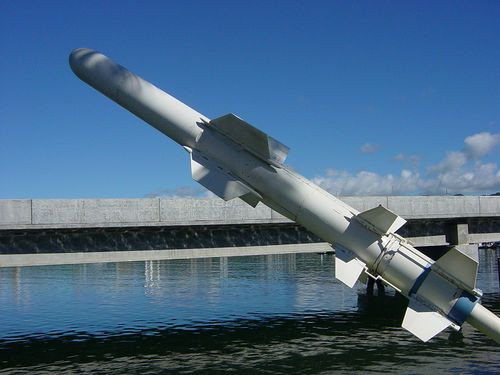Pakistan Frets Over Proposed U.S. Anti-Sub Missile Sales To India

KEY POINTS
- The sales are designed to upgrade India’s capabilities of deterring "regional threats"
- The Harpoon Block II air launched missiles each have a range of about 77 miles
- Pakistan characterized the proposed transactions as "disturbing"
Pakistan has criticized a decision by the U.S. government to sell new military equipment to India.
Earlier this week, the U.S. State Department informed the U.S. Congress of its plan to sell 10 AGM-84L Harpoon Block II air-launched anti-ship missiles as well as 16 MK 54 Lightweight Torpedoes and three MK 54 Exercise Torpedoes – for a total value of $155 million -- to India.
The sales are designed to upgrade India’s capabilities of deterring "regional threats" and to strengthen its homeland defense.
The Pentagon said the U.S. State Department approved the sales after a request from the Indian government amid China flexing its military prowess in the Indian Ocean region.
The Harpoon Block II air launched missiles each have a range of about 77 miles.
The anti-ship missiles and the torpedoes would then be integrated with the Indian Navy’s P-8I Neptune advanced maritime patrol/anti-submarine warfare aircraft -- also dubbed the “submarine killer.”
“The Harpoon missile system will be integrated into the P-8I aircraft to conduct anti-surface warfare missions in defense of critical sea lanes while enhancing interoperability with the United States and other allied forces,” said the Pentagon’s Defense Security Cooperation Agency, or DSCA.
The MK 54 Lightweight Torpedo, DSCA noted, will “provide the capability to conduct anti-submarine warfare missions.”
Franz-Stefan Gady of The Diplomat wrote that the P-8I is “equipped with some of the most modern U.S. anti-submarine warfare technology including a Telephonics APS-143 OceanEye aft radar system and a cutting-edge magnetic anomaly detector.”
The aircraft are all “data-linked with Indian submarines in order to have the capability to pass on information about enemy vessels.”
The deal also includes personnel training and technical assistance, engineering, and logistics support services from U.S. government and contractor representatives.
The Harpoon missiles will be manufactured by Boeing (BA), while the torpedoes will be made by Raytheon (RTN).
But Pakistan characterized the proposed transactions as "disturbing" and warned that they would "destabilize" the region.
"The sale of such missile systems, along with technical assistance and logistic support at the time when there is a global effort to fight the [coronavirus] pandemic is particularly disturbing,” said Pakistan Foreign Office Spokesperson Aisha Farooqui. “This will destabilize the already volatile situation in South Asia.”
The DSCA said the proposed sales “will support the foreign policy and national security of the U.S. by helping to strengthen the U.S.-Indian strategic relationship and to improve the security of a major defensive partner, which continues to be an important force for political stability, peace, and economic progress in the Indo-Pacific and South Asia region.”
DSCA added that these sales “will not alter the basic military balance in the region.”
The proposed sales remain subject to approval by the U.S. Congress.
Indian media reported that China is the principal focus of the Indian military in regional waters. China has had numerous territorial disputes with other Asian nations (namely Vietnam, Malaysia, the Philippines, Brunei, Taiwan and Japan) regarding the sovereignty of islands in the South China Sea and the East China Sea. These two bodies of water are not only crucial to global trade but reportedly boast significant reserves of minerals, oil and other natural resources.
India is also warily monitoring Chinese naval activities in its proximity -- in the Bay of Bengal and Indian Ocean.
In 2016, the U.S. designated India as a “Major Defense Partner," which allows New Delhi to purchase advanced and sensitive technologies from the U.S.
© Copyright IBTimes 2024. All rights reserved.



















